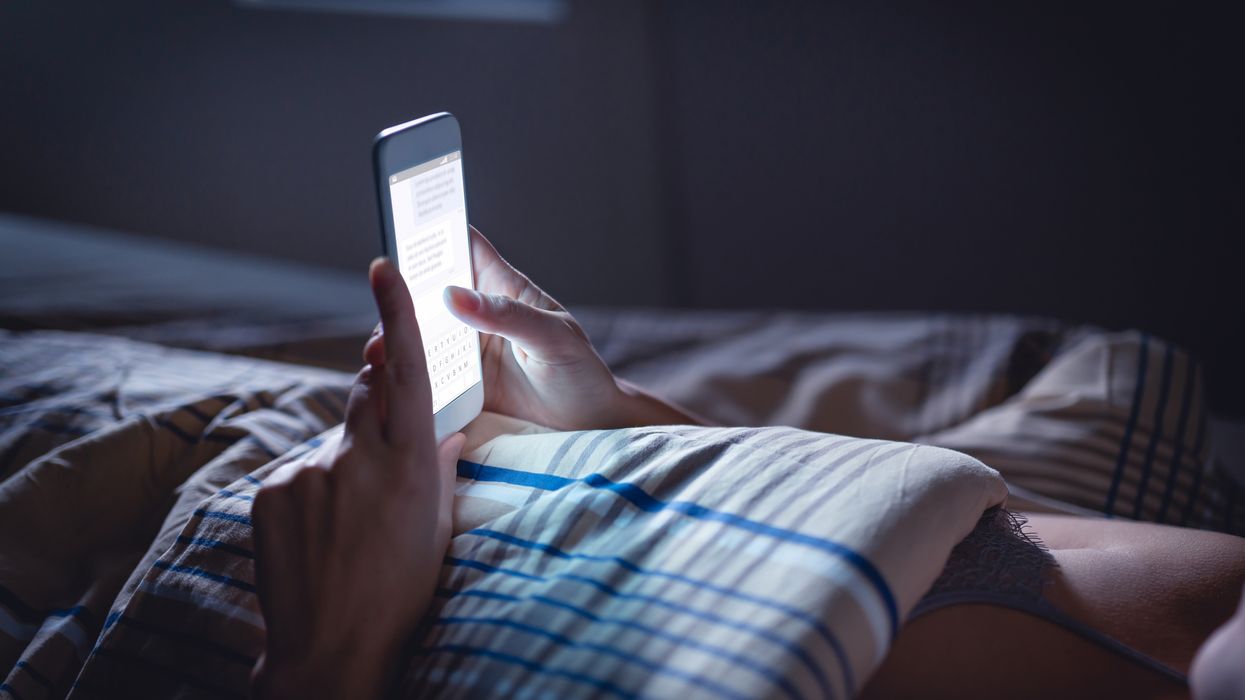This Toronto Sleep Expert Has The Secret To Stop You From Doomscrolling All Night
If you're spending your nights staring at the ceiling wondering how to fall asleep, you're not alone.
The past year has brought on extra stress and challenges that make it harder to get some shut-eye.
Alanna McGinn, founder and lead sleep expert at Good Night Sleep Site, told Narcity she's seen a rise in sleeping struggles since the pandemic began.
Luckily, she has some advice on how you can overcome anxieties and other obstacles and drift off to dreamland.
Editor's Choice: Toronto Productivity Expert Reveals What To Do If You Can Barely Focus On Anything RN
Have a tech-curfew
It may come as no surprise to learn that tech is the biggest culprit in sleepless nights, according to McGinn.
Not only can blue light affect your sleep cycle, but the content you're consuming can pose a threat as well.
"The news right now is super triggering," McGinn said. "If those headlines and those articles are going to amp up stress and anxiety, [they're] probably not the best thing to read before you go to bed."
She suggested paying attention to the type of content you're absorbing, from social media accounts to television shows.
"I think the most important thing you can do is set boundaries around tech," she said.
This could be anything from disconnecting an hour before bed to removing tech from the room completely.
Create a good sleeping routine and environment
With so many people working from home, bedrooms have been serving as offices, which can have an effect on sleep.
"[Make] sure you're clearing away that clutter before you go to bed so that you're not staring at work files or reading emails," McGinn advised.
She encourages people to create a "sleep sanctuary [by] keeping things cool, dark and quiet," and including calming routines such as yoga.
She also suggests, "writing things out [...] before you go to bed so [...] it's not swimming in your head while you're trying to sleep."
"There's also a lot of great mindful apps [...] that can help too, so it's up to you to set those boundaries and know what works for you and what doesn't."
Set yourself up for a good sleep throughout the day
"When we wake up in the morning, our goal is always to build the strongest drive for sleep throughout the day," McGinn explained.
Soaking up some natural light and getting at least 30 minutes of vigorous exercise each day can help you fall asleep faster.
Taking what she calls "personal pauses" is a good way to work through your anxieties.
"One to three minutes a day, maybe twice a day, allow yourself to go into a quiet space and [...] work through the problems at that moment so that you don't feel a need to work on them at midnight."
McGinn emphasized that getting a good sleep takes time and patience.
"Whatever you're including in your sleep plan, you have to commit to," she said.

